Ask Us Anything


Interested in learning more about the origin of our investment philosophy or the firm itself? Looking for some clarity on a financial planning topic, the markets, or your portfolio? Curious about the make up of our team, how we operate, or our company culture? Send us your thoughts using the form below and receive an answer to the questions you’ve always wanted to ask. Submissions will be anonymous and no question is off limits – answers may be, but you can ask whatever you want!
QUESTION: The prominence of the “Magnificent 7” makes the market feel top-heavy at times. Is the dominance of a small number of companies in various US stock indexes different from what we’ve seen historically?
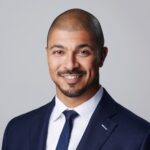
Great question! Let me begin with a real headline from CNN Business in 2023:
“The stock market is dominated by just a handful of companies. The Biden Administration is worried.”
At the time of this article, the Magnificent 7 (Alphabet, Amazon, Apple, Meta, Microsoft, Nvidia, and Tesla) were collectively worth a relatively quaint sum of $11T. Just a couple years later, their total combined value has ballooned to over $20T, and they take up more than 1/3 of the space in the S&P500.
Figure 1 illustrates how the Magnificent 7’s share of the index has increased over the past decade (and the visual is pulled from an article that offers further insights for those who may be interested).
This trend is nothing new, neither in the number of companies dominating the market nor in their respective share of market dominance. The headline above could have easily been published in a number of the preceding decades and would have worked just as well (with a change in the name of the administration, of course).
As you can see in Figure 2, courtesy of our friends at Dimensional, the top 10 companies as measured by market share exceeded 30% both in the 1940s and the 1960s (and exceeded 20% in four other instances, most recently at the start of this current decade).
Figure 3 takes a more focused view of the past 50 years, showing how the list of the top 10 companies evolves over the years. Note that none of the companies in the top 10 in 1980 are present in today’s top 10, and only Microsoft and Apple have been in the top 10 for more than 10 years.
What should you make of this? We offer a trio of insights:
- This is why we diversify. Picking the winners ahead of time is hard (read: almost impossible unless you get lucky), and predicting which winners will stay at the top of the heap is just as hard. You’re better off being broadly diversified and capturing growth from wherever it emerges.
- Markets work. And by “work” we mean that markets do a good job of digesting the available information and pricing companies appropriately. And when growth is occurring more heavily in one sector of the market, you’ll still get a piece of that in your portfolio. And when that growth slows/stops, other pieces of your portfolio will prop up its performance.
- Discipline pays off in the end. We don’t chase returns and we don’t build portfolios around trends. Your portfolio is built to last, and that’s why we employ our evidence-based approach. It’s not about making the most money or beating the market by the widest margin; it’s about capturing growth in ways we can rely on.
If you’d like to dive into this further, don’t hesitate to reach out to a member of our team – we love to talk about this stuff, especially with you!
QUESTION: I keep seeing headlines that AI is a bubble! When is it going to pop? Are we protected if it does?

We appreciate the question! The short answer is we believe our Clients are positioned well to weather anything that may come. Our Clients’ portfolios are broadly, globally diversified which we believe to be the best approach in all times, and the best way to mitigate risk in the event of a downturn. We don’t know if AI is a bubble, or if/when it will pop, but we do know the market has its ups and downs so being broadly diversified and grounded in our approach (and not trying to predict what one stock/sector/country might do in the short run) is what we believe is best.
Yeske Buie portfolios (Clients’ and our own, which are invested the same exact way) are certainly exposed to AI in that the accounts are invested in the companies that have the biggest stakes in AI (like Nvidia through the S&P 500 fund), but we haven’t made any specific changes related to the AI developments of the last few years.
We continue to believe that valuation matters – large growth stocks (like these AI companies and the largest US tech companies) have astronomically high valuations (often measured by Price-to-Earnings ratios – what it costs to buy one dollar of that company’s earnings) compared to their long-run averages, but the Yeske Buie portfolio (which, again, is broadly diversified, includes international exposure, and tilts in favor of small company and value stocks) has a much lower overall valuation. And valuation continues to be the most reliable indicator of a stock’s future performance – lower valuations suggest higher expected returns in the future.
Our rebalancing strategy certainly helps to maintain the ideal target allocations, too. If/as the US Large portion of Client portfolios (which includes big AI companies like Nvidia) grows, it will be sold back to its target when it pierces its respective tolerance band, and the proceeds will be used to top up other positions.
And, as we have mentioned on a few webinars this year (2025) and talk about often with Clients spending from their portfolios, our Safe-Spending System has an intentional design in the bonds portion of the portfolio. Most Clients in this phase are allocated 70% to stocks and 30% to bonds, and we top up the cash for a full 12 months’ worth of spending need every six months. Based on this, in the event of the inevitable downturn (no matter when it comes or what causes it – since we know downturns are unavoidable and a natural part of market and economic cycles), we raise cash only from the bonds portion of the portfolio and leave the stocks untouched to fully participate in the subsequent recovery (which, believing in human resilience and ingenuity, we also believe will arrive given the nature of market and economic cycles). This stable reserve of cash and bonds will bridge a spending Client’s portfolio through 6-7 years of a downturn before we’d ever have to consider selling stocks at depressed prices (and even longer if you’re not spending the full Safe-Spending Target each year).
We do know that downturns come and go, and we do believe that recoveries follow. We also know that headlines often try to predict exactly when and why the proverbial next shoe is going to drop. Instead of playing into those games, we continue to remain grounded in our philosophy, policy-based in our application of our policy (rebalancing, cash needs, stable reserve), and focused on resilience at all times.
QUESTION: How do I know if I have enough money available to do the things my family and I really want or need?
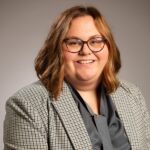
What a great question!
As Financial Planners, we understand that knowing whether you have enough money to achieve your family’s dreams is crucial to your peace of mind. That’s why we take a personalized and thoughtful approach to your financial plan. At Yeske Buie, each year (after our initial Discovery Process and Initial Financial Plan) we sit down with you to review your current financial situation and overall financial plan to make sure that you are on the right track to achieve your goals.
One of the tools we use in our financial planning software to assess the path you are on and explore tradeoffs amongst various goals you have is called Monte Carlo Analysis. This tool allows us to run thousands of simulations and “stress test” your financial plan, giving us a clearer picture of how your plan might perform under various economic circumstancesand how various possible scenarios compare. It helps us account for the unexpected twists and turns that life may bring, allowing us to constantly assess where you are on the course toward your various goals and to help you stay adaptable over time. Sharing these projections with you is not to tell you exactly what to do or what will happen but, rather, to explore tradeoffs and possibilities so you can determine the best next step for you that aligns with your values and wishes.
Later, when it comes time for your hard-earned money to support you through your spending years, we share Safe-Spending Policies tailored specifically to your portfolio values and current market conditions. These targets help to determine how much you can sustainably spend from your diversified portfolio each year while still preserving your long-term financial health. By sticking to these guidelines, you can confidently enjoy the things you and your family love.
Through our regular reviews, careful analysis, and personalized spending targets, we provide you with the clarity and confidence to do the things your family truly wants. Our goal is to empower you to pursue your Live Big life, whatever that looks like for you!
QUESTION: News about European markets and economies feel pretty dismal these days. Take this Wall Street Journal article titled “Europeans Are Becoming Poorer,” for example. What are the implications for our portfolio? What adjustments do you think we should make?

Such a great question.
While it seems intuitively true that slow economic growth and slow growth in consumers’ disposable income should equate to low returns in the stock market, it turns out that there are confounding factors, including fundamental market pricing mechanisms. With respect to the latter, there’s evidence that markets price securities for appropriate (global) risk-adjusted returns whatever the productivity of the economy as a whole. So, if an economy is slow growing, its markets will tend to price stocks lower relative to their earnings or assets, thus requiring (and setting the stage for) a higher return. For example, in Greece, investors pay only $2 for every dollar of earnings, versus 8 times earnings in Italy, 10 times in the UK, 15 times in Germany, and 23 times in the US. So, however high or low growth the economy may be, investors make adjustments when they assign valuations.
Another confounding factor is that a country’s stock market tends to be dominated by multinational firms that are selling into a global consumer market. The WSJ article noted that Germany derives half of its economic activity from exports versus just 10% for the US. A tangible example of how this can play out is the Swedish stock market, which over a 40 year span grew 2.3% faster than Sweden’s economy (GDP).
I guess the bottom line is that stock markets are not uninfluenced by the domestic economies they inhabit, but investors make adjustments to ensure that expected returns conform to some broader expectations and requirements.
And we think current valuations actually make European markets pretty attractive right now.
QUESTION: From time to time, I receive emails from you about trades in my account and updated reports on my page. I don’t mind receiving them, but I’m not sure I understand their purpose.
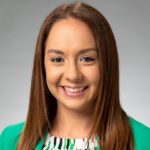
Excellent question! The main purpose of the emails about trades in your account is to provide you with the context and rationale behind our actions. You may also receive emails from Schwab about the trades, and while they provide the details of what was traded, they lack any context of why the trades were made. Yeske Buie trade emails aim to provide that information to help you stay appraised of just how we’re Investing Big so that you can focus on Living Big!
Regarding the reports on your Client Private Page®, although we don’t think it’s necessary for you to look at your reports every month – that’s what we’re here for, and it is about the long-term, after all! – we update your reports every month so that you have access to detailed and up-to-date information. We send an email to let you know that the information is available, and to remind you that we’re always working for you, thinking about you, and here for you as you navigate your financial and life journey.
QUESTION: Given my age (78) and my current financial situation, would it make sense for me to consider something like a reverse mortgage on my primary residence on which I owe a balance of $572,000 with an interest rate of 3.25%. It’s a 30-year mortgage on which I pay $2,611 in principal and interest along with $1,894 towards an escrow account that covers my property tax and homeowner’s insurance.

We think a reverse mortgage can be a powerful tool in retirement in the right situation, and reverse mortgages aren’t as predatory and scary as they used to be. There is significant regulation on Home Equity Conversion Mortgages (HECMs) now – including counseling required before you put one in place and ongoing home upkeep requirements (including continuing to pay your property taxes and insurance premiums). There are also different types of reverse mortgages out there that provide higher initial access to your equity.
As always, it depends on you and your specific circumstances. One of the biggest considerations is your legacy desire for your home, if any. Do you have a desire to leave your home (the physical home itself) to your heirs? If so, a reverse mortgage may not be the right answer because the entire accumulated balance of the reverse mortgage must be paid at the last borrower’s passing (which often requires a sale of the home unless your heirs have significant cash available elsewhere at the time). Depending on how much equity you have in your home and the reverse mortgage loan balance you plan to have, projections can be run on how much equity will (or won’t) be left at your passing.
In this specific scenario above, and in many, the other consideration is how much reverse mortgage you can qualify for. With HECMs, there is a max limit ($970,800) and the amount you qualify for is based on the youngest borrower’s age so you realistically can only ever get a portion of that maximum.
If you don’t qualify for a large enough HECM to completely wipe out your mortgage, you won’t be able to pursue the HECM route (as a requirement is that it must fully cover any primary mortgage to remove it completely from the property). In this case, however, you might be able to qualify for one of the proprietary reverse mortgages with much higher limits (though this can mean higher interest rates on the reverse mortgage loan balance which ultimately leads back to question one above and how much equity you will or won’t be able to leave to any heirs).
It’s a great question and, as always with financial planning, is nuanced and personal. If you have the same question, let’s talk about it! And, for anyone interested, you can learn more about reverse mortgage considerations, rules, definitions, and functions and see calculation examples in our Reverse Mortgage Mini-Series Part 1, Part 2, and Part 3.
QUESTION: What’s it like to run and manage a company that has offices so far away from each other? I imagine technology plays a big role.

To be honest, it’s easy to forget that our offices are 2,400 miles apart! This is in part because, as you noted, technology helps us to bridge the geographical gap so that it doesn’t feel like our offices are on opposite sides of the country.
Clients may experience the seamlessness of our technological connections in a few ways. For example, if you call any of our office numbers, the phone rings in both locations. If you mail something to one office, we can easily share it with someone in the other office. You may even find yourself in an in-person meeting in one office with a team member beaming in virtually from our other office.
Internally, we also heavily lean on technology to connect and work together. I am in our San Francisco office and work very closely with Lauren Mireles who is in our Vienna office. Despite working so far apart from each other – and in different time zones! – our chat and meeting software, Zoom, allows us to communicate and share information without interruption or any frictional loss as if we are in one office (just with a 2,400-mile-long hallway).
Beyond the technology, there’s also an intentional commitment deeply engrained within our culture to connect and communicate as one team. We often refer to this idea as Team Big. Some of our Team Big initiatives include connecting virtually each month to celebrate team members’ birthdays with a special shared treat, blocking the calendar for periods of ‘social time’ together in addition to standard company meetings, and participating in annual staff retreats where we all gather for several days to talk about the firm and build our personal relationships.
While we often wish we could see each other in person more frequently (virtual hugs just aren’t the same as real hugs!), we’re proud of how we’ve bridge the physical gap between the offices and we cherish the relationships we have with our Clients and teammates no matter where they’re located.
QUESTION: Because I wasn’t spending as much money during the pandemic, I have a chunk of cash in an account that I want to put to good use. Should I invest it? Pay off some debt? Give it to charity?

The famous financial planning answer wins here: it depends! The answer to this question (as with many financial planning questions) depends completely on your individual situation, goals, values, and desires. That being said, there are some general approaches you could consider, and we’d be happy to talk to you directly about your situation to give you individual advice.
First and foremost, our policy is that any cash that you anticipate needing in the coming 12-18 months or so should remain in cash; the market is too volatile to invest short-term cash and know it will be there in that same amount when you need it.
Next, if you have cash flow policies in place (e.g., to fund your emergency fund, then employer retirement accounts, then additional savings buckets like charity, vacations, education funding, etc.), we suggest you use that extra money in a way that follows your policies. This is exactly why they’re powerful; you have an answer for what to do next regardless of whether you have $10, $10,000, or $100,000 extra. If your emergency fund is fully funded, your retirement accounts have been maxed out for the year, and you’ve saved for other specific needs, it might make sense to invest the rest of your excess cash in a diversified portfolio for any future needs.
If you don’t have any cash flow policies in place, consider the other aspects of your financial situation. How much is your debt costing you? If it’s debt like a mortgage or car loan, it’s likely costing you a lot less than what we think those same dollars could earn being invested in the market for your long-term goals. If this is the case, financially, it often makes sense to put that money to work for you by investing it in the market (versus reducing debt). But the financial consideration is one piece of the puzzle; How does the debt feel to you emotionally? If, instead, you have credit card debt costing you 15%+ in interest, it might make sense to pay down that balance (and then, going forward, only use the credit card for expenses you can pay off in full each month).
If charity is important to you, add it to your cash flow policies. Perhaps you direct a certain percentage of any excess cash (now and in the future) to charitable giving. Additionally, you might have vacations, children, educations, gifts, moves, job changes, new cars, home renovations, sabbaticals, or other goals to save for. We’d love to work together to help you build your cash flow policies or answer the question of where to direct your cash – reach out and let’s chat!
QUESTION: This isn’t really a question, but I had a meeting with you recently and I walked away feeling like you honestly listened to me. I didn’t realize it during the meeting, but you seem to be really good listeners!

We are so happy to hear that you felt this way! We value every opportunity we have to connect with you, and we approach each interaction with a goal of making you feel heard, listened to, and understood. We are intentional about being fully present in meetings, and we are always working to enhance our active listening skills so that you receive our undivided attention and know that our time together is all about you. We want to be someone that you can depend on, trust, and feel safe with, and we appreciate feedback like this – and otherwise! – to ensure we’re meeting the mark for you.
We also hope you know that your sharings deeply impact and fulfill us. We have such an appreciation for the vulnerability and openness that Clients like you show us by sharing your stories, history, and feelings. I have personally learned so much from hearing stories and perspectives like yours, and professionally, I continue to gain a deeper understanding of the importance of truly knowing the people I work with in order to build fundamentally strong and unique financial plans. In financial planning, there’s no one-size-fits-all plan. Everyone has different wants and needs, and different goals and dreams in life. Life is also unpredictable, and the things we think we want now may change down the road. And that is one of the most beautiful parts of our relationship together! We not only get to build personalized plans to help you achieve your goals and dreams, but we also get to embark on this journey with you for years and years to come. To be able to see the progress and share the big moments with you is the most fulfilling part of this profession, in my opinion.
Anyway, thank you again for sharing! And we look forward to our next meeting with you.
QUESTION: My spouse and I have different views about money which causes some friction in our relationship. Do you have any suggestions for making these tough conversations feel a little less sticky?

Funny you should ask – MY spouse and I ALSO have different views about money! And I’m sure we’re not the only two couples who share this experience 😉
What has helped us most in our conversations has been a commitment to share with each other openly, honestly, and in a non-judgmental space. We acknowledge that each of us has a unique history with money, rife with implicit and explicit lessons learned along the way. And we agree that neither of us has an individual understanding of how we make our money work for us can’t be improved through further dialogue.
Once we were able to create that comfortable environment for sharing, we were able to build a framework for our conversations and ongoing management of our finances. And as we enter our ninth year of marriage, we observe that we’ve had to revisit these commitments, acknowledgements, and agreements as our situation continued to evolve. It’s a never-ending process, and it’s much more enjoyable when you approach it as teammates instead of rivals.
QUESTION: I’m looking forward to retiring in a few years, but I’m worried that I’ll have to make some changes to my lifestyle when I’m no longer bringing home a paycheck. I can’t be the only person who feels this way, right?
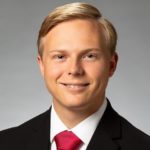
The transition from a career into retirement is probably the biggest life transition anyone will ever make, so it’s no surprise that you would have questions. The first thing I can share is that retirement necessitates change, not only to your budget but to the way you spend your time. Remember, retirement isn’t simply the freedom to stop doing work; it’s the freedom to start pursuing new passions. It’s important to spend time with yourself to determine what’s important to you and to create a vision for your ideal retirement lifestyle.
Once you’ve figured out how to spend your newfound free time, you can fund it in whichever way makes sense to you. Many people find it helpful to turn their retirement savings into a retirement paycheck. From your investment accounts, you can make automatic monthly or biweekly deposits to your bank account, in keeping with your previous paychecks. This helps minimize the impact of the transition on your wallet and allows you to focus on the changes that really matter.
We have a number of tools and resources available to help you prepare for retirement both financially and mentally – let’s talk one-on-one to work through this transition together!
QUESTION: I’ve been hearing a lot of discussions lately around the difference between being a financial planner, and being a financial advisor. What is your take on the differences and how do these discussions relate to the financial services regulations being addressed by the SEC and other regulating bodies? What additional changes do you think are coming down the road?
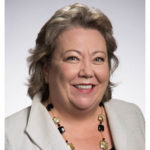
At Yeske Buie, we are financial planners. To us this means doing strategic analysis for our Clients, doing holistic financial planning, acting as fiduciaries, and always putting our clients first. Financial advice, on the other hand, is more transactional, ask and answer. I believe that there is a difference between what we do and what the rest of the “financial services” industry does, and I think that with Reg BI (the SEC’s Regulation Best Interest), it feels like someone is finally starting to pay attention to these differences – thank goodness!

We operate in an environment where ‘financial planning’ and ‘financial planner’ are not regulated terms and therefore, the public doesn’t know what to expect when they engage with a financial planner or financial advisor. The regulatory environment and the boundaries that get created are an important part of what the public can rely on, and I believe it’s an important part of how we get identified and the boundaries that we have to practice within. Unfortunately, in my opinion, there’s not enough regulation in some ways: anyone can call themselves a financial planner, and anyone can say they’re doing financial planning in whatever they’re doing and however they’re practicing it.
At Yeske Buie, we believe that what really matters is client-centered, fiduciary-based financial planning. If there is going to be more regulation around who can call themselves a financial planner and who can’t, we think it’s going to have to do with, first of all, requiring that someone be client-centered and fiduciary-based. But it’s also going to be about doing real financial planning, and real financial planning is holistic, it’s strategic, it has multiple components, and it has to address all aspects of a person’s financial life in the context of their personal goals, their personal history, and their values. So, to the degree that you can set rules of the road that require someone to be comprehensive and holistic and require that they be a fiduciary, then we could have some good regulation and we need more of that.
It’s hard to say what changes are going to come down the pike in terms of regulating financial planners right now. The most recent change has been Reg BI which I think is, unfortunately, too little. I think it confuses things more than it clarifies them. For the rest, I think we’re going to see some state regulation. A 50-state strategy for regulating for financial planners is highly problematic, but it may end up being the only path we can go down. I think a lot of the action is going to be on the state side ride now.
QUESTION: Does Yeske Buie have a trigger mechanism in place in the event it becomes apparent the market gets overheated to the point where it seems likely that we’d be facing a bubble bursting scenario?

That’s a good question. It’s natural to start worrying about valuations when the stock market has had a good run. There are three things I would want to note in this context:
First, the kind of portfolios we assemble are global in scope, allocating less than 50% to the U.S. stock market. To the degree that U.S. Blue Chips have had a good run, that’s only a relatively small part of the portfolio. And markets outside the U.S., by and large, are not sporting valuations as high as the Dow Jones Industrials or the S&P 500.
A second point is that our portfolios are always tilted significantly toward stocks with low prices relative to their earnings or assets, also known as “value” stocks. This means that the mutual fund building blocks we use, predominantly from Dimensional Fund Advisors (DFA), are always shifting their positions away from the most “overheated” sectors in the market toward the least. This means that we will generally be underexposed to the kind of risk we saw during the dot.com boom in the nineties when many portfolios ended up over-weighted in technology stocks, which had grown to be an ever larger component of the major indexes.
And speaking of the dot.com boom brings me to my third point: you just can’t outguess the market. You can be right in some long-term sense and still wrong about the near-term. As an example, I recall quite vividly the many voices saying that the market was overvalued at the end of 1995 when the S&P 500 had just risen more than 37%. However sound the reasoning behind such a sentiment, the market didn’t care but instead went on to rise 23% in 1996, 33% in 1997, 29% in 1998, and 21% in 1999. While it’s true that the market fell from 2000 to 2002, getting on the sidelines after 1995 would have left you worse off than just riding out the subsequent gains and losses of the next seven years.
QUESTION: Financial plans frequently seem to be built around the assumption that couples are of the same age. Often, however, they’re not. How does retirement income planning address the needs of couples who may have an age gap of ten to twenty years? Does one base the plan on the age of the younger partner, assuming then that the older partner is covered, by default? Or does it make more sense to develop two separate plans, one for the younger and one for the older partner?

Great question! As with almost everything in financial planning, the answer is that it depends. First and foremost, it depends on the couples’ vision for their retirement, as well as what’s actually feasible based on their available resources. It’s often the case that couples wish to retire at the same time so as to be able to engage in shared activities like travel, spending more time with family, and volunteer work. In that case, it’s less a matter of focusing on the age of one or the other partner as on a date that works for both of them.
As far as developing two separate plans, we’re able to build a single retirement model that accommodates various scenarios, including not just simultaneous retirement but a phased approach as well. This might include a scenario in which the younger partner continues to work full or part-time for some period after the older partner has retired, with any shortfall in household income being made up from accumulated savings. And if simultaneous retirement for both partners is not financially feasible, one of the questions we would seek to answer is how much longer the younger partner needs to work in order to bridge that gap.
One other factor can come into play when there is a significant age difference between partners is how to manage medical coverage before qualifying for Medicare. And if the couple was depending on employer-provided medical coverage from the older partner’s employer, this can also create a gap if the older partner retires first. In the past, this was potentially an issue with individuals and couples of any age who were contemplating retirement before age 65 when they qualified for Medicare, especially if there was a medical condition that would make obtaining new coverage difficult or impossible. Fortunately, the Affordable Care Act now ensures that one or both partners are guaranteed the ability to obtain coverage in order to bridge a gap that might arise from retiring early or otherwise losing medical coverage before qualifying for Medicare.
QUESTION: What is the best way or time for Millennials to enter the market for the first time and have you noticed any changes or patterns with Millennials compared to past generations?

We think the best time for Millennials to enter the market is when they have the money to do so. This is most often the case after they’ve graduated college and begun their work career. Deciding to become a saver (and investor) right from the start can be very powerful. We like to say that Millennials all have a superpower, but it’s one that fades with time and they should use it while it can do the most good. Because of the nature of compound returns, every good decision made in your twenties is exponentially more powerful than the same decision made in your thirties. For example, every $100 saved at age 25, assuming an 8% rate of return, will be worth nearly $2,200 at age 65, while every $100 saved at age 35 will be worth just $1,000.
One way for Millennials to harness their superpower is through the use of financial planning policies, which are compact decision rules that can help guide one through changing life circumstances. Millennials are more likely than other generations to face many life changes over the next few years, including job and career changes, marriage, children, and first time home buying. Financial planning policies can make it easier to navigate those changes.
As far as noticing different behavior on the part of Millennials compared to other generations, we haven’t noticed anything significant. If anything, they may be more inclined to save early and often while at the same time perhaps not quite so focused on buying that first home. Our perspective is probably skewed by the fact that most of the Millennials we work with are either the children of long-time clients or up-and-coming career-oriented types who have actively sought out our advice because they want to be making good decisions right from the start.
QUESTION: I feel like every day I read another headline about internet hackers, fraudulent activity affecting individuals’ credit scores, and unbelievable statistics on identity theft. How does Yeske Buie protect my information and do you have any recommendations for your Clients to ensure their personal information is safe?

That’s a great question! Most of us are careful to insure our homes, cars, and loved ones but can sometimes overlook protecting something as important as our identity. Yeske Buie primarily stores Client information in our secure databases, the Schwab encrypted website, and the Salesforce security-protected website. Paper documents we receive are filed electronically and then destroyed. Any documents kept as hard copies are locked in cabinets within our secure offices that have restricted after-hours access. We do not share your financial information with non-Yeske Buie employees aside from Schwab without your permission. Additionally, we do not list any account numbers or sensitive information (SSN, DOB, etc.) on your Client Private Page or in emails (we list only the last four digits of your account number if necessary). When we send you documents that contain sensitive information, the documents will be attached to the email as a ShareFile link that allows you to download the file via a 256-bit encrypted connection. This link is only valid for 24 hours, so if your email account is ever compromised, the hacker will be unable to use the links found in old emails.
We also encourage our Clients to practice good computer hygiene. When sending us information, we recommend that Clients use the Secure Upload Form on our website, send the document via fax or regular mail, or email the document as a password-protected attachment. If information is sent insecurely via email, we will always delete the email from our inbox and again from our deleted folder to ensure the information cannot be mined or hacked and we will request that you do the same, as well as also deleting the email from your “sent mail” folder.
Finally, Yeske Buie has negotiated a discounted subscription rate with IdentityForce, a leading provider of proactive identity, privacy, and credit protection with over 35 years of experience. With an IdentityForce account, you will receive constant identity and credit report monitoring, instant alerts of suspicious activity, reports of all your personal information that is made public on the internet, anti-keylogging and anti-phishing software to protect you against malware and phishing sites, and more. Learn more about our agreement with IdentityForce and sign-up for identity protection here.
QUESTION: What is the best age to start financial planning?

Well, first let’s start by distinguishing between financial literacy and financial planning. Financial literacy is the understanding of personal finance, while financial planning is the actual strategizing about and implementing actions for harnessing your financial resources to meet your goals. Financial literacy should start in early childhood. For example, when your young child is with you and you get money from the ATM, you can explain that the reason there is money in that machine for you is that Mommy/Daddy work and get paid to do so. And you put that money in the bank so you can use it when you need it for things like groceries and gasoline and clothes and things. Involving your child in choices-and-consequences dialogs (“Shall we go to the park and then have ice cream after, or go to the movies today?”) is a great way to teach them that finances are finite. Yeske Buie’s Financial Literacy Program is designed to help parents, grandparents, aunts and uncles help their young family members begin to learn about saving, spending, donating and investing.
Financial planning can also start at any age, at least in theory. But generally a person needs to have multiple goals for which they are planning. (“Planning” for one goal is generally just “saving.”) We see real planning begin to be helpful by the time someone is graduating or has recently graduated from college. They have income and they have needs. They may have student loans to begin paying off and need a car. They certainly need to begin saving up an emergency fund and should invariably participate in their employer retirement plan at the highest contribution rate they can manage (with definite plans to increase that rate to the maximum over some time period). And insurance becomes important as a person has earnings (disability insurance is a must) and owns things (renters and auto with liability coverage built in). At this stage in life, a budget becomes important (and great tools exist, like www.Mint.com, to make this more palatable than otherwise anticipated). The next phase in life where we see young people seeking financial planning is when they experience some transition like buying a house or getting married. These transitions create additional needs, like life insurance and, eventually for many, college education savings.
We find that financial policies work well for young people whose situations are not complex, but do change fairly frequently. Policies such as how to allocate savings (e.g. First to an emergency fund, then to your company retirement plan up to the match, then to a ROTH IRA, and so on), what to insure and how to invest can help young people make good decisions as their life circumstances change.
Our education system rarely teaches our children about financial literacy and certainly misses out on teaching financial planning. The more the adults in their lives can do, the better of their future will be.
QUESTION: While on a call with Elissa, she mentioned that the end of the year is always a very busy time for Yeske Buie. Why is that?

This is a great question as there is a lot of action that goes on behind the scenes at Yeske Buie at the end of the year. First, we review all IRA accounts for three things: the potential to convert some or all of your assets into a Roth account, confirmation one final time of the processing of all Required Minimum Distributions (RMDs), and to ensure there has been no overfunding of retirement plans throughout the year. The first is done by performing a Roth Conversion Analysis for every eligible account. We will only recommend a conversion if there are compelling reasons to do so, for example to take advantage of low tax rates. Very few of the accounts we review prove to be good candidates for a Roth conversion so most likely, your account was reviewed without you even knowing. The latter two items are completed by running and reviewing reports to ensure all transactions suggested and initiated throughout the year were successfully completed.
In addition to reviewing retirement accounts, we also consider various tax rules to ensure Clients take advantage of all possible tax benefits. This includes, but is certainly not limited to, helping Clients with their estimated tax payments and finalizing any charitable contributions that a Client wishes to make by the end of the tax year. Also, it’s worth mentioning that the end of year hustle and bustle extends into the first few weeks of the New Year. During this time we run numerous tax reports and portfolio reports and post them to all Client Private Pages and begin investing proceeds from the dividends distributed at the end of the year while at the same time starting the process to fund Clients’ Required Minimum Distributions for the new year.
So, to make sure it doesn’t sound like we are complaining about this “hard work,” we all really enjoy this level of detail. And our hard work is complemented with occasional fun breaks at this time of year. In early December, the entire team meets virtually for our holiday card signing party where we play holiday music, indulge in champagne and snacks, and individually sign every holiday card to be sent to Clients, centers of influence, fellow CFP® professionals, and other family and friends. As always, despite the year-end/beginning-year hustle and bustle, you should never hesitate to call or email us if you have any needs that we can accommodate!
QUESTION: How do Elissa and Dave manage being business partners and life partners? Do you ever get tired of each other?

That’s a fun question. No, Dave and I don’t really ever get tired of each other. We are human, so we may fuss with each other at times. But I wouldn’t say we get tired of each other. We enjoy the same things, like eating out, walking, wine, movies, museums, traveling and most of all, talking, and especially, talking about financial planning. Some people might imagine, for good reason, that we’d get tired of that. But financial planning really is one of our passions. It’s a very diverse profession with a lot of moving parts, so there is always something to consider and analyze. And we do a lot of mentoring, speaking and writing, so there is always something to be working on. And we love running our business, so that gives us an entire additional set of discussion topics. And if I can admit it, we periodically find ourselves enjoying a conversation between the two of us about our Clients (in code! We NEVER use client names if we are anywhere other than at home or in the office), their successes and families and hobbies, etc. I think one of our biggest challenges is if we ever retire, what will we talk about then?

After Elissa and I merged our financial planning firms in 2008 to form Yeske Buie, I had more than one person say to me, “well, of course you merged your firms, you’re married.” To which I could only respond: “Have you never been married before? That was the LAST reason to merge!” We originally founded financial planning firms because we liked having control of how clients were served and how the business was run. However, our friend and mentor David Brand invited us to be more open minded, which led to a year of contemplation and dialogue during which we realized that we not only had shared values and a belief in the power of financial planning to transform lives for the better, we also had non-overlapping skills and interests with respect to all the elements that go into running a financial planning firm and serving clients. Now, we can’t imagine it any other way.
And it’s true that we are more than a little obsessive when it comes to talking about the profession and the business. You don’t know what it’s like to be married to a financial planner until you wake up to find your wife staring at you, waiting to ask you to confirm her conclusion about a sticky tax problem. And when our daughters were young and sitting in the back seat of the car during a road trip, they would often exclaim in exasperation: “can you PLEASE give it a rest!”



